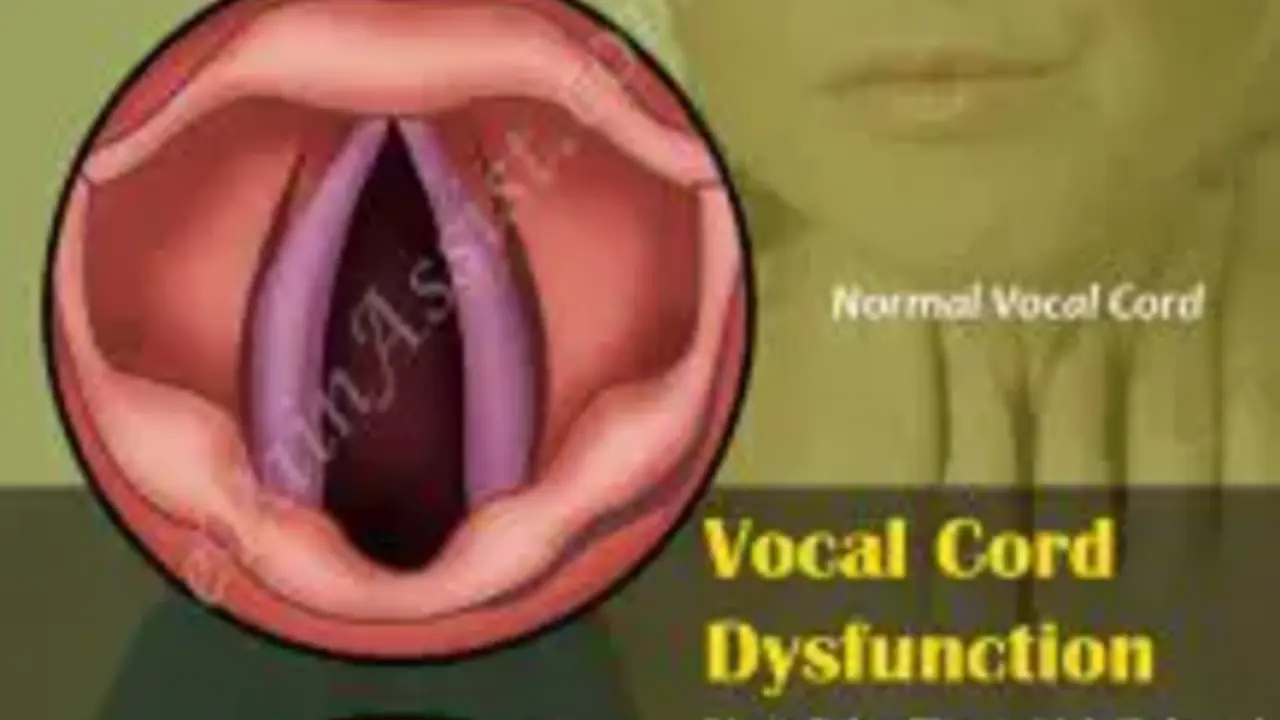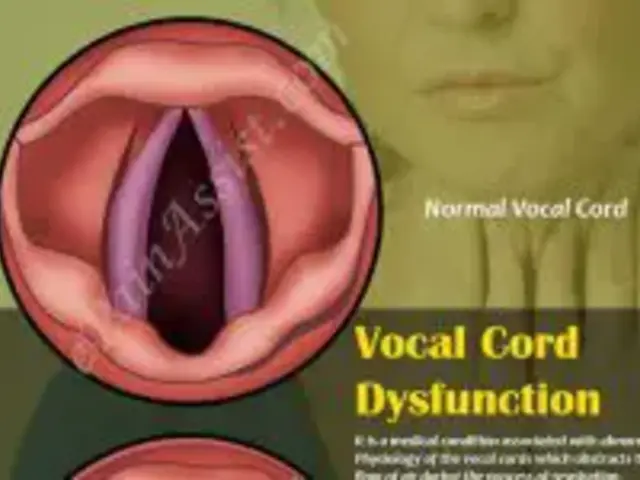
Understanding The Fundamentals: Asthma and Vocal Cord Dysfunction
Let's kick things off by taking a closer look at the separate entities involved here. Asthma, a term that probably needs no introduction, has been surfacing in our conversations since Adam was a lad. It's a chronic condition influencing airways in the lungs, marked by frequent bouts of breathing problems and serious coughing fits. In contrast, Vocal Cord Dysfunction (VCD), while carrying nearly identical early symptoms, is a lesser-known condition wherein the vocal cords involuntarily shape-shift narrowing the airway and instigating breathing difficulties.
Before moving onto the next section, it's crucial to address that these two aren't distant cousins from separate towns, they are more like siamese twins, often misconstrued as the other. In fact, my dear husband Alfred once ended up in hospital erroneously treated for Asthma while he was actually grappling with VCD. Important takeaway? It's essential to differentiate between the two for appropriate treatment. I mean, you wouldn't give fish to Vivaldi, my Siamese cat, who's allergic to anything that lived in water, would you?
Misdiagnosis Mayhem: The Ongoing Confusion
As I've mentioned before, the similarity in initial symptoms for Asthma and VCD often leads to a medical mix-up. It's like swapping salt for sugar in your morning coffee because they both look alike, except the repercussions here are a tad bit more serious. While they might be completely different from the inside, on the outside, both Asthma and VCD like to play dress-up in each other's clothes.
Alfred and I remember standing by helplessly as Alfred's doctor dismissed his VCD for Asthma, simply because the picture was painted with the same brushes. Breathing issues? Check. Tight feeling around the throat? Check. Asthma, it must be? Well, not necessarily. After much insistence, they ran a few additional tests and voila, it was VCD all along. Lesson learnt? Always trust your gut, especially if your body is the canvas. It's your masterpiece, after all!
Common Causes: An Unlikely Connection
Now, we're getting into the most delicious part of this cake — the connection between Asthma and VCD. What if I told you that they are strongly linked like Vivaldi and his tail (literally and metaphorically)? I know it sounds intriguing, but the truth is, these two conditions often occur simultaneously in the same patient, causing an increase in severity of symptoms and added confusion in diagnosis.
What causes this sinister solidarity, you ask? Well, various triggers such as allergies, airborne irritants, exercise, reflux, post-nasal drip, psychological stress, and even certain medications can instigate both Asthma and VCD. And here's a fun fact for you: strong emotions or stress (like the one you feel when your cat breaks your favourite china) can actually be a common trigger for VCD, often overlooked when considering physical triggers.
Pinpointing The Differences: A Guide to Better Diagnosis
Our conversation can't be complete without discussing how to differentiate between these two lookalike conditions. I mean, just as Alfred discovered his love for painting by separating it from photography, a closer understanding of Asthma and VCD will help in ideal diagnosis and treatment. It’s crucial to not commingle the specifics and know the fine line separating the two.
For one, Asthma is a lower respiratory issue that affects the small airways in the lungs, while VCD is an upper respiratory problem vaguely located in the neck region. You can feel Asthma's effects more during exhalation, while VCD tends to make inhaling a challenge. Specific treatment for Asthma (inhaled corticosteroids, for instance) might not affect VCD since they assist the airway muscle bands, whereas vocal cord issues remain unchanged. By closing this knowledge gap, the diagnosis and treatment are streamlined to an impressive speed and efficiency, and that's precisely what patients of either condition need.
Treating Your Condition: Living, Breathing Proof
Finally, exactly how do we tame this rowdy duo? Alfred's journey unveiled a world of difference between treating Asthma and VCD. Think lambs versus lions, they both have essentially four legs and a tail, but you cannot possibly approach them in the same manner, right? Similarly each condition requires a different approach.
Asthma, for instance, responds well to inhaled corticosteroids, long-acting bronchodilators, and biologics, while VCD might need speech therapy, breathing exercises, and anxiety management. The key, in either case, is to start early, understand symptoms carefully, know the triggers, and choose your healthcare provider wisely.
Speaking from a personal viewpoint, I have seen Alfred's road to recovery and it's riveting. He's no superhero, but he's as regular as any of us who battle with their health daily. Understanding is key and acknowledging the subtle cues your body offers, and then acting on it is the lesson to take home. Believe me, while the road might be bumpy, seeing Alfred serenely painting in the golden hours of the morning, instead of clutching at his throat in panic, has made every single hurdle worth it.





Write a comment